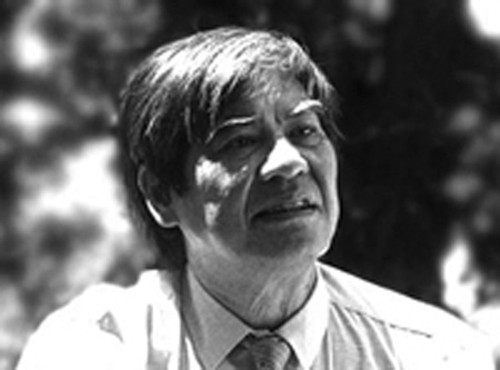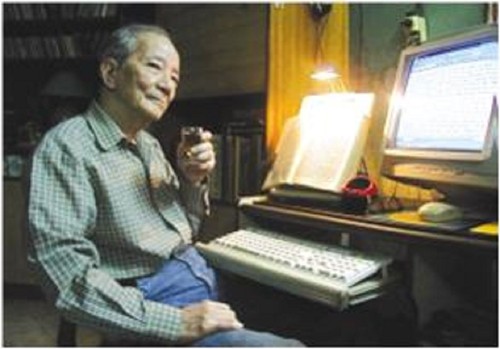 Songwriter Nguyen Dinh Thi (1924-2003). (Photo: baicadicungnamthang.net) Songwriter Nguyen Dinh Thi (1924-2003). (Photo: baicadicungnamthang.net) |
During the National Party Congress in Tuyen Quang province on August 13, 1945, the Uprising Committee issued a military order, calling on soldiers and people to rise up to recapture national independence. Vietnamese nationwide – from Hanoi to distant rural areas – mobilized forces to take control of their local administration. The uprising took just a few days to attain a great success.
On September 7, 1945, the song “Wipe out the fascists” was broadcast for the first time as the signature tune of the Voice of Vietnam. The song was written by Nguyen Dinh Thi in that historic autumn.
“I still remember that time. On my way home from a cultural conference for national salvation, I kept thinking about the revolutionary situation. The word 'Vietnam' repeatedly echoed in my mind, which gave me the idea for the song ‘Wipe out the fascists’. I sent the song to several friends, and soon it became popular and was chosen as the theme song for Hanoi’s liberation,” Thi said shortly before his death in 2003.
Xuan Oanh wrote “August 19” on August 19, 1945, as he was marching with other revolutionaries from a suburban area to Hanoi. The song captured the historic moment of the 1945 revolution in 10 verses with simple lyrics.
“August 19” was recorded and broadcast by the Voice of Vietnam on September 2, 1945, the day President Ho Chi Minh read the Declaration of Independence, announcing the birth of the Democratic Republic of Vietnam.
 Songwriter Xuan Oanh (1923-2010). (Photo: dangcongsan.vn) Songwriter Xuan Oanh (1923-2010). (Photo: dangcongsan.vn)
|
“I nurtured the idea of writing a revolutionary song on the occasion of uprising day. The song came to my mind as I was marching with other revolutionaries. Everyone repeated the song’s lyrics and when we reached the Opera House, I finished the song. It had a marching melody, because we sang it while we were marching. The song describes “August 19” as an historic day,” said Xuan Oanh.
More than 7 decades have passed but songs like “Wipe out the fascists” and “August 19” are still popular and are still reminding Vietnamese of that historic autumn.